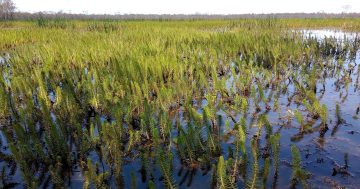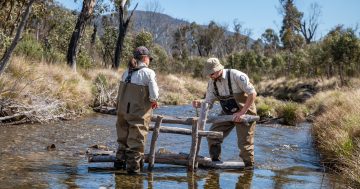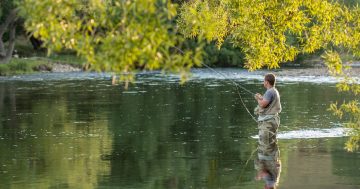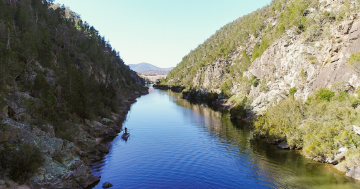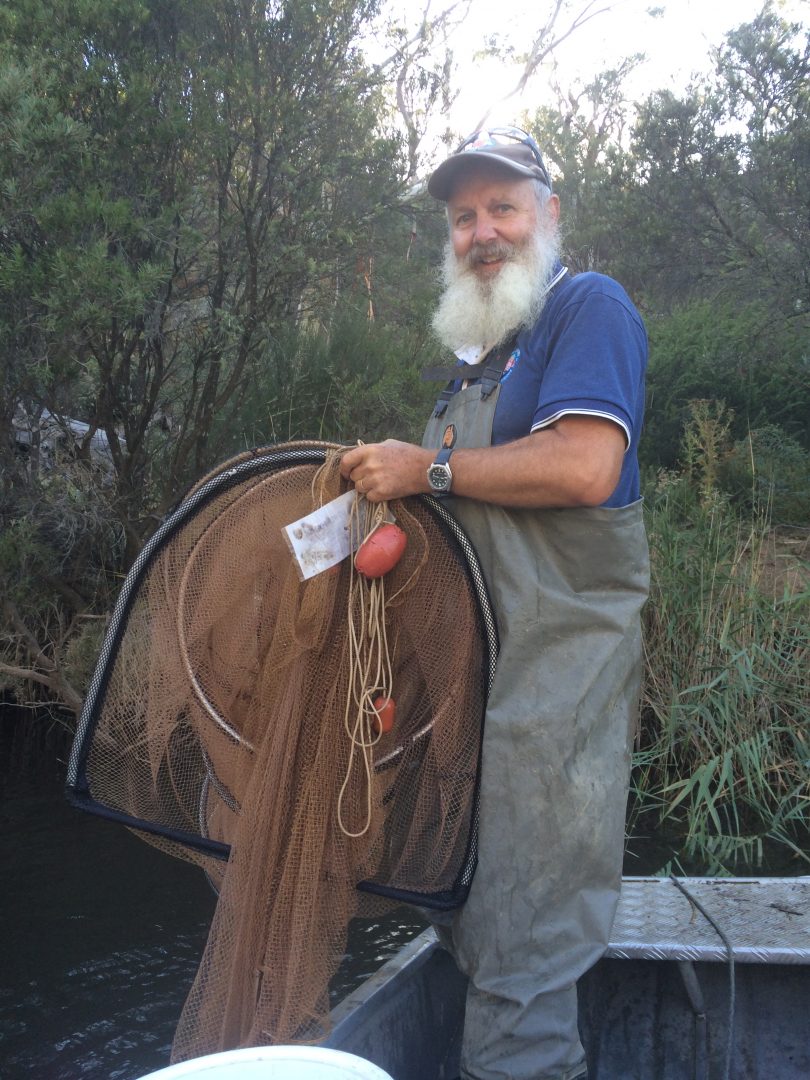
Associate Professor Mark Lintermans is studying Australian freshwater fish that are threatened with extinction. Photo: Supplied.
University of Canberra Associate Professor Mark Lintermans is rescuing the endangered southern pygmy perch, a fish species less than five centimetres in length.
While the deaths of many thousands of larger fish in the Murray-Darling Basin made headlines earlier last year, Associate Professor Lintermans has been wading through creeks and rivers studying Australian freshwater fish that are threatened with extinction but rarely make the news.
Professor Lintermans said 37 per cent of Australian freshwater fish are facing extinction and many of the fish are less than five centimetres in length. He’s been studying freshwater fish since the mid-1990s and has documented his findings in a study for the Institute for Applied Ecology at the University of Canberra.
The study involved more than 50 national fish experts from across the country and assessed almost 250 Australian freshwater fish species. The study found that 88 were threatened with extinction, with another 16 assessed as near-threatened.
“This is the first strategic national assessment ever done for Australian freshwater fish and is a wake-up call,” Professor Lintermans said.
“Of note is the fact that 27 of the 88 threatened fishes are currently undescribed or described since 2010, highlighting that we have likely lost several species before they were even described.”
He said fish such as the Macquarie perch and trout cod are some of the local species under threat, along with the mountain galaxias and southern pygmy perch, two species of freshwater fish native to south-eastern Australia.
“Across Australia, there are lots of small species that have been threatened and they’re the ones that are often overlooked because anglers don’t interact with them and the public don’t see them,” he said.
“When the fish kills of the big fish like cod and yellowbelly perch hit the media, you see them, but with the little species that are less than 50 mm, they are gobbled up by birds before a fish kill is ever quantified, so you never know that some of these small fish even existed.”
The study showed the major threats to Australian freshwater fish around the country is invasive species (93 per cent), habitat loss or disturbance (73 per cent) and climate change (58 per cent).
“In a largely arid country in the grip of another drought, competition for water is fierce and fish and other aquatic fauna are often not considered,” he said.
“The sobering assessment of more than a third of our fish being threatened with extinction is the wake-up call we need to act to protect rivers and water resources.”
However, it’s not all bad news, with two freshwater fish species, the trout cod (Maccullochella macquariensis) improving from endangered to vulnerable, and pedder galaxias (Galaxias peddernsis) improving from critically endangered to endangered.
“After 30 years of conservation action, the trout cod is starting to come back, which is a bit of good news.”
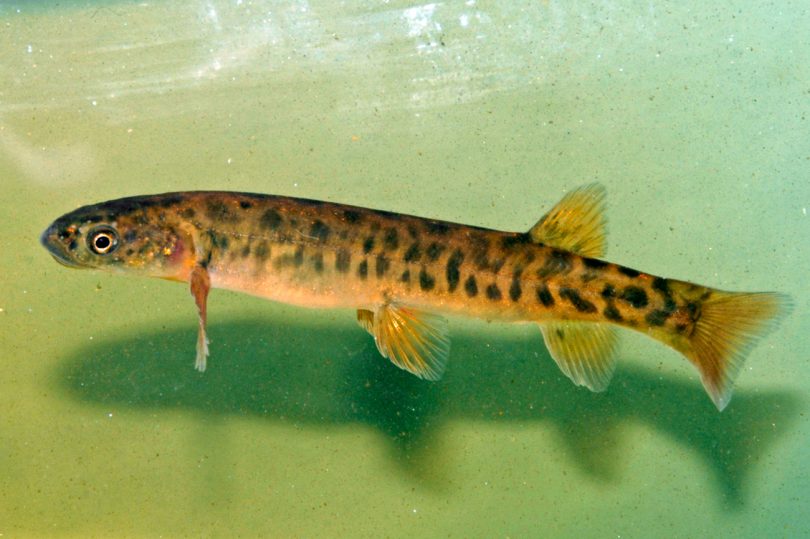
The Pedder Galaxias. Photo: Rudie H Kuiter.
Professor Lintermans said it is unfortunate that fish do not figure as a priority on the Commonwealth Government’s conservation agenda, so he’s calling for future strategies to identify priority fish for conservation action.
“There are no freshwater fish (only mammals, birds and plants) identified as priorities in the 2015 National Threatened Species Strategy which expires in 2020.
“If we do not identify priority fish for conservation action, we are destined to repeat the appalling extinction record for Australian mammals.”
The study was also part of an assessment by the International Union for Conservation of Nature and published in the Red List, which is the international benchmark and most authoritative list of threatened species used around the world.
Meanwhile, Canberra lakes have been bolstered with release of more than 39,000 native Murray cod into recreational fishing lakes.
Tens of thousands of young Murray cod fingerlings were released last month into Yerrabi Pond, Gungahlin Pond, Isabella Pond and Upper Stranger Pond.
“The stocking of recreational fish species in Canberra’s urban lakes helps in the conservation of native species by relieving fishing pressure on the more fragile rivers and streams in the ACT,” ACT Government senior ecologist Dr Lisa Evans said.
Dr Evans said a further 21,000 Murray cod were also released into Lake Burley Griffin last month with the support of the National Capital Authority.
Original Article published by Michael Weaver on The RiotACT.







